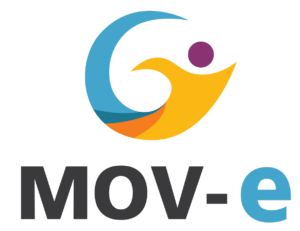Cross-cultural aspect
Gathering insights from each partner regarding exceptionally delicate matters and identifying culturally appropriate approaches for handling them.
Turkey
Here are some practical suggestions for the physiotherapist to overcome communication barriers and ensure respectful physical contact while discussing postural defects with a Turkish teenage patient:
Pre-Consultation:
- Consider involving a parent or guardian in the initial consultation, especially for younger teenagers. This can ease communication and address any concerns about physical contact.
- Clearly explain the purpose of the assessment and any physical contact that may be required.
- If the physiotherapist is a male, offer a female colleague to perform the assessment if the patient or their parent expresses discomfort with a male touching them.
During the Consultation: - Use respectful language and address the patient by their preferred title (e.g., Bey/Hanım for teenagers, followed by their first name).
- Explain the importance of good posture and the potential benefits of physiotherapy in a way that is engaging and age-appropriate.
- Before physical assessment, observe the patient’s posture while they stand or walk. Discuss your observations and potential causes of any postural defects.
- Always obtain verbal consent before any physical touch. Explain exactly where and how you will be making contact.
- Use a gentle, non-invasive touch when assessing posture. Focus on essential areas like the spine and shoulders.
- Consider using visual aids like posture charts or demonstrations instead of solely relying on hand placement.
- Pay attention to the patient’s verbal and nonverbal cues. They may express discomfort indirectly.
- Encourage the patient to participate in discussions and ask questions. This creates a more collaborative environment.
- Frame the discussion around feeling better and preventing future problems. Avoid dwelling on negative aspects of posture.
Cultural Considerations (Turkish Context):
- Turkish culture can be more indirect in communication. Be patient and allow the teenager to express themselves comfortably.
- Physiotherapists are considered healthcare professionals and deserve respect. The teenager may initially be hesitant to express concerns directly. Be encouraging and approachable.
- Respecting boundaries of physical contact is particularly important in Turkey. Be mindful of gender and avoid any unnecessary touch.
- In Turkey, patients are pleased to be greeted warmly and sincerely when they go to a physiotherapist for a session.
- The therapist should warn the patient about the course of the visit, what tests/examinations will be carried out, and for what purpose. Especially if the therapist has to touch the patient for the purpose of examination, he/she should warn about this and the patient must give his/her consent.
-If the adolescent individual has applied for physiotherapy with his/her family, there is an expectation that communication will be provided and there will be an environment of trust, even when the individual is alone, without family members being present.
By following these suggestions, the physiotherapist can build trust and create a comfortable space for the patient to discuss postural issues. Remember, clear communication, informed consent, and sensitive touch are crucial for successful interaction.
- What similarities have you noticed in your culture?
- What differences have you noticed in your culture?
- What should you pay attention to when caring for a patient with different cultural values?


Leave a Reply
Want to join the discussion?Feel free to contribute!